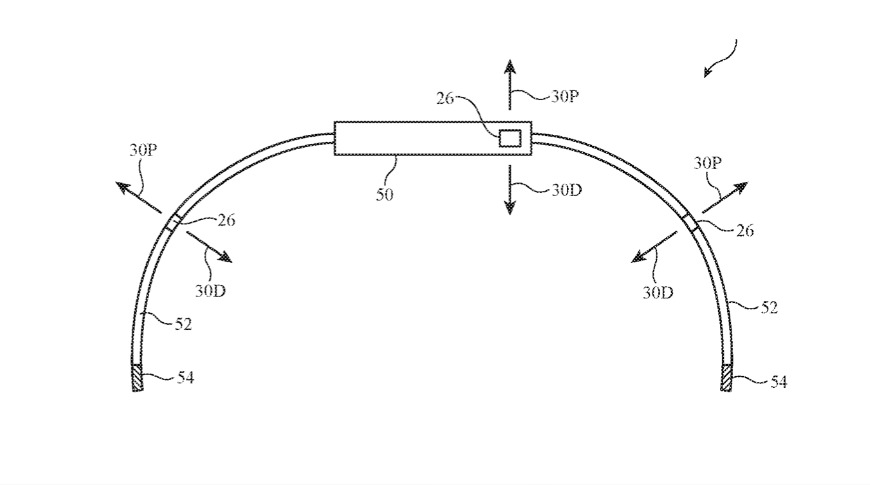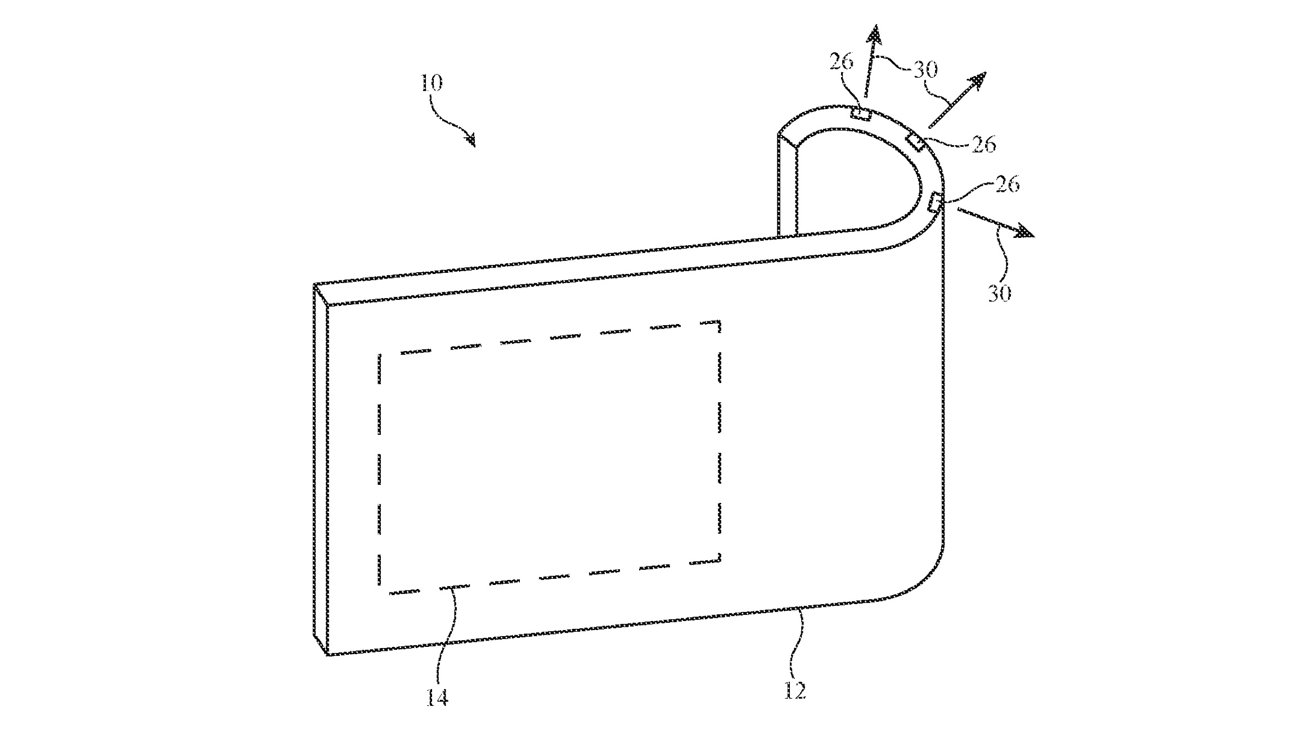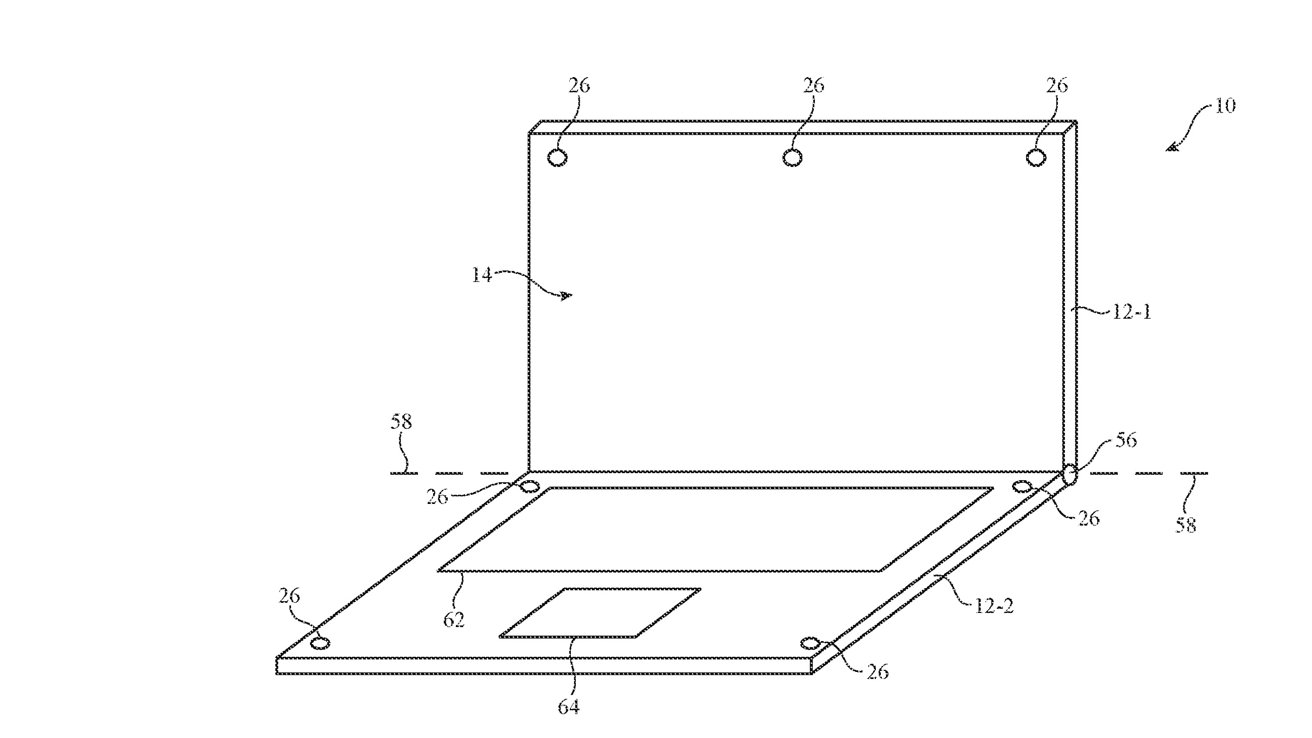Apple is researching ways to embed multiple cameras in the body of a “flexible” device like a folding iPhone or iPad, and allow the device to be bent to take a picture or change a setting of the embedded cameras.
This illustration, from one of Apple’s earlier patent applications, shows what appears to be an Apple Watch or similar device with cameras embedded in the strap.
We covered the original patent in 2021, which appeared to be Apple Watch-centric. The accompanying art in the patent showed the potential use in what appears to be a wearable device with cameras in the straps and some language that specifically says the device could use “a force sensor” to trigger the camera.
A camera’s lens cannot be flexed or bent, at least not with current technology. Smartphone cameras combine a glass or plastic lens with a silicone imaging sensor. Neither of these components can bend without breaking.
With cameras and lenses continually shrinking, Apple may intend to embed multiple smaller cameras into a flexible shell to capture different types of images. The technology could allow future devices, such as a watch band or bendable smartphone, to change camera operation based on how they are flexed.
In a recently granted patent, “Camera Systems For Bendable Electronic Devices,” Apple appears to be updating a previous patent of the same name. The new patent filing includes some additional insights into the potential uses of this technology.
In the new version, the language about force sensors and input has been eliminated. Instead, language about changing the camera functionality by bending the unit has been emphasized.
Apple also indicated that the surface’s curve could enable panoramic or 3D imaging, depending on how the device is flexed.
“By reorienting the cameras by bending the housing,” Apple explains, “the camera can capture panoramic or three-dimensional images.”
Apple’s new patent shows several other illustrations that indicate Apple is researching using this technology in multiple applications.
A typical issue with many panoramic image capture solutions is that manually panning from one direction to another adds distortions, especially at the edges of the image. Apple’s new technology could correct those distortions by using multiple cameras pointed in different directions instead of one panned from side to side.
Likewise, current 3D capture tools generally use two cameras side-by-side to capture a 3D video image, but a flexible capture system can make much more immersive content.
In the illustrations associated with the patent, the technology seems like it has potential not just for for phones, but wearables, and laptops as well.
The updated artwork now clearly shows that the key part of this patent is a flexible housing with cameras on each side. This by its nature would not be limited to a watch band.
It’s possible that the newly filed patent update is to clarify the technological use. It’s also possible that it could include other products Apple has since decided would benefit from this technology.
As with the original patent, the new filing credits Kathrine E. Tong. Apple has also credited her with patents on tracing real-world objects into 3D with a device such as the Apple Pencil and generating virtual Apple AR objects.
This story originally appeared on Appleinsider



